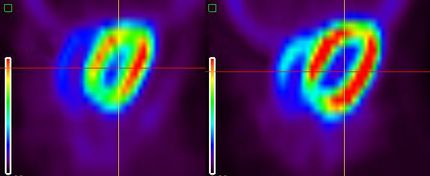Nanobiotix Starts Clinical Trial with Lead Product NBTXR3
A Completely New Cancer Treatment to Be Tested in Patients with Soft Tissue Sarcoma
Nanobiotix announced that its lead compound NBTXR3 has received the formal authorization from the French Medicine Agency, AFSSAPS, to start the first clinical trial.
27 patients diagnosed with soft tissue sarcoma will be enrolled in the Phase I study and will receive NBTXR3 as an intra-tumoral injection with radiotherapy prior to surgery (first-line treatment). The primary endpoints of the clinical trial are the feasibility of NBTXR3 administration and safety. Preliminary data are expected by the end of 2012.
The trial is a prospective, open-label, dose-escalation, single arm, non-randomized trial. NBTXR3 will be administered to the patients prior to surgery by a single intra-tumoral injection followed by standard radiotherapy procedure. After completion of the regular treatment procedure, the patients will undergo surgery to resect the soft tissue sarcoma. Along with the safety and feasibility endpoints, the primary tumor tissue will then be available for the evaluation of the pathological response rate.
Further clinical trials are in preparation in Europe and in the US. NBTXR3 has been classified in the EU as class III medical device. In the US, it has been classified as a drug by the FDA.
NBTXR3, the most advanced compound of Nanobiotix´ NanoXray pipeline, is intended to enhance the local destruction of the tumor mass during radiotherapy. NBTXR3 is a nanoparticle consisting of hafnium oxide crystals. Once injected into the tumor, NBTXR3 accumulates in the cancer cells. Due to the physical properties of hafnium oxide, the particles emit huge amounts of electrons upon radiation. This leads to the formation of radicals within the tumor cell, which in turn damage the cancer cells and cause their targeted destruction. NBTXR3 particles are inert and emit electrons only during their exposure to radiotherapy. As a result, the destructive power of standard radiation therapy could be locally and selectively enhanced within the tumor cells.
Most read news
Organizations
Other news from the department research and development

Get the life science industry in your inbox
By submitting this form you agree that LUMITOS AG will send you the newsletter(s) selected above by email. Your data will not be passed on to third parties. Your data will be stored and processed in accordance with our data protection regulations. LUMITOS may contact you by email for the purpose of advertising or market and opinion surveys. You can revoke your consent at any time without giving reasons to LUMITOS AG, Ernst-Augustin-Str. 2, 12489 Berlin, Germany or by e-mail at revoke@lumitos.com with effect for the future. In addition, each email contains a link to unsubscribe from the corresponding newsletter.
More news from our other portals
Last viewed contents
























































